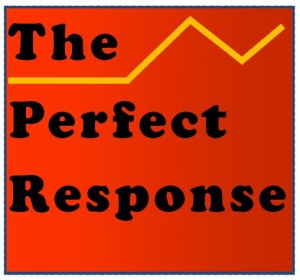In lockdown we have become less able to practice the conversational arts that typically include building common ground.
The pandemic has shortened our direct contact with others and, as a likely consequence, some of the empathic qualities of everyday discourse as well. It isn’t that we have stopped meeting strangers in face to face encounters. It is that the remaining and limited moments of contact can more easily devolve into apathy, rudeness and even verbal hostility.
If we are to believe news reports and videos of people behaving badly in airports, planes, grocery stores, and take-out restaurants, we may be right to conclude that a larger minority are burning short fuses. The sensible precaution of mask-wearing in a public place has sparked any number of confrontations, often leaving overworked clerks to try to calm tantrums of defiance. On a friendliness scale from 0 to 10, a reasonable guess is that many Americans struggle to interact with strangers and stay above six. And especially for service and mental health providers, the number seems to be heading lower. Short tempers, indifference and impatience rule.
All of this is by way of suggesting that this uneasiness that defines personal relations has been aggravated by our isolation. This is most dramatic in the retail politics that rules the airwaves. What was once more likely to be civil discourse more often devolves into the kinds of rhetorical horror shows, especially at the political margins. The pandemic has meant that there are even fewer contacts happening that might help bridge the gap between disrupters like Donald Trump and more traditional institutionalists.
Of course it is not just the pandemic that feeds this split. Social media have aggravated the problem by enabling political victimization without equally facilitating engagement. To cite one small sign of our isolation, the dining rooms in the Capitol complex where members and staffers used to mix informally are mostly closed; take-out is the order of the day. It’s a reminder that in lockdown we have become less able to practice the conversational and transactional arts that typically help us find common ground.
Have we forgotten how to be kind?
And because listening in our “me” age has never been very good, it follows that our impatience to consider different views has grown. An office or public space is shared with others. But when the space we occupy is exclusively our own, there may be a natural diminution in the ability to see things from another’s standpoint. In a word, the pandemic has made us less empathetic.
Many of us feel like our worlds have grown small and isolating. That perception is reinforced by overreliance on sadly inadequate media that substitute for direct contact. Kids are rightly tired of remote learning. And their media malaise seems matched by workers still at home. Research suggests that workers generally like the convenience of living over the office, but many have also slipped into a stilted formality with co-workers that can be seen on any number of video platforms. A camera that is on and recording us is a natural intimidation. I doubt that Zoom and its counterparts ever deliver the best versions of ourselves.
We can see our struggle in terms of our increased time in the virtual world. But, interestingly, in 1979 President Jimmy Carter identified the same dynamics of a nation coming apart.
The symptoms of this crisis of the American spirit are all around us. For the first time in the history of our country a majority of our people believe that the next five years will be worse than the past five years. Two-thirds of our people do not even vote. The productivity of American workers is actually dropping, and the willingness of Americans to save for the future has fallen below that of all other people in the Western world.
As you know, there is a growing disrespect for government and for churches and for schools, the news media, and other institutions. This is not a message of happiness or reassurance, but it is the truth and it is a warning.
It may be a coincidence that this unusual “malaise” speech happened in the formative decade for the home computer and the internet. Both would become key escape routes that would allow more remote messaging. Carter thought we had succumbed to the empty desire of “owning things and consuming things” in our search for meaning. But the national “emptiness” he described fits the digital age as well.
Of course, the sources of human behavior are partly unknowable, multi-dimensional and triggered by countless biographical and social origins. But I suspect that many of our political and social standoffs are enabled by technologies and the physical vulnerabilities that have forced us into mediated contact.
![]()


 Lawrence Wright’s book on the intense negotiations that led to the historical Camp David Accords is a good indicator of what is so frequently missing in our politics. Thirteen Days in September (2014) documents the efforts of President Jimmy Carter to find a way out of the chronic Arab/Israeli impasse, working with Israel’s Menachem Begin and Egypt’s Anwar Sadat as his partners. Without doubt the recipient of the Nobel Peace Prize had—and still has—the instincts of a peacemaker. By contrast, prior to the negotiations in 1978, Begin and Sadat had contributed more than their share to the blood-letting that still occurs along borders that surround the Sinai Peninsula. In modern usage, they might have justifiably been labeled terrorists. And yet Carter put his already shaky presidency on the line to cloister these foes in the mountains of western Maryland on the outside chance that they could be induced to produce a lasting peace.
Lawrence Wright’s book on the intense negotiations that led to the historical Camp David Accords is a good indicator of what is so frequently missing in our politics. Thirteen Days in September (2014) documents the efforts of President Jimmy Carter to find a way out of the chronic Arab/Israeli impasse, working with Israel’s Menachem Begin and Egypt’s Anwar Sadat as his partners. Without doubt the recipient of the Nobel Peace Prize had—and still has—the instincts of a peacemaker. By contrast, prior to the negotiations in 1978, Begin and Sadat had contributed more than their share to the blood-letting that still occurs along borders that surround the Sinai Peninsula. In modern usage, they might have justifiably been labeled terrorists. And yet Carter put his already shaky presidency on the line to cloister these foes in the mountains of western Maryland on the outside chance that they could be induced to produce a lasting peace.